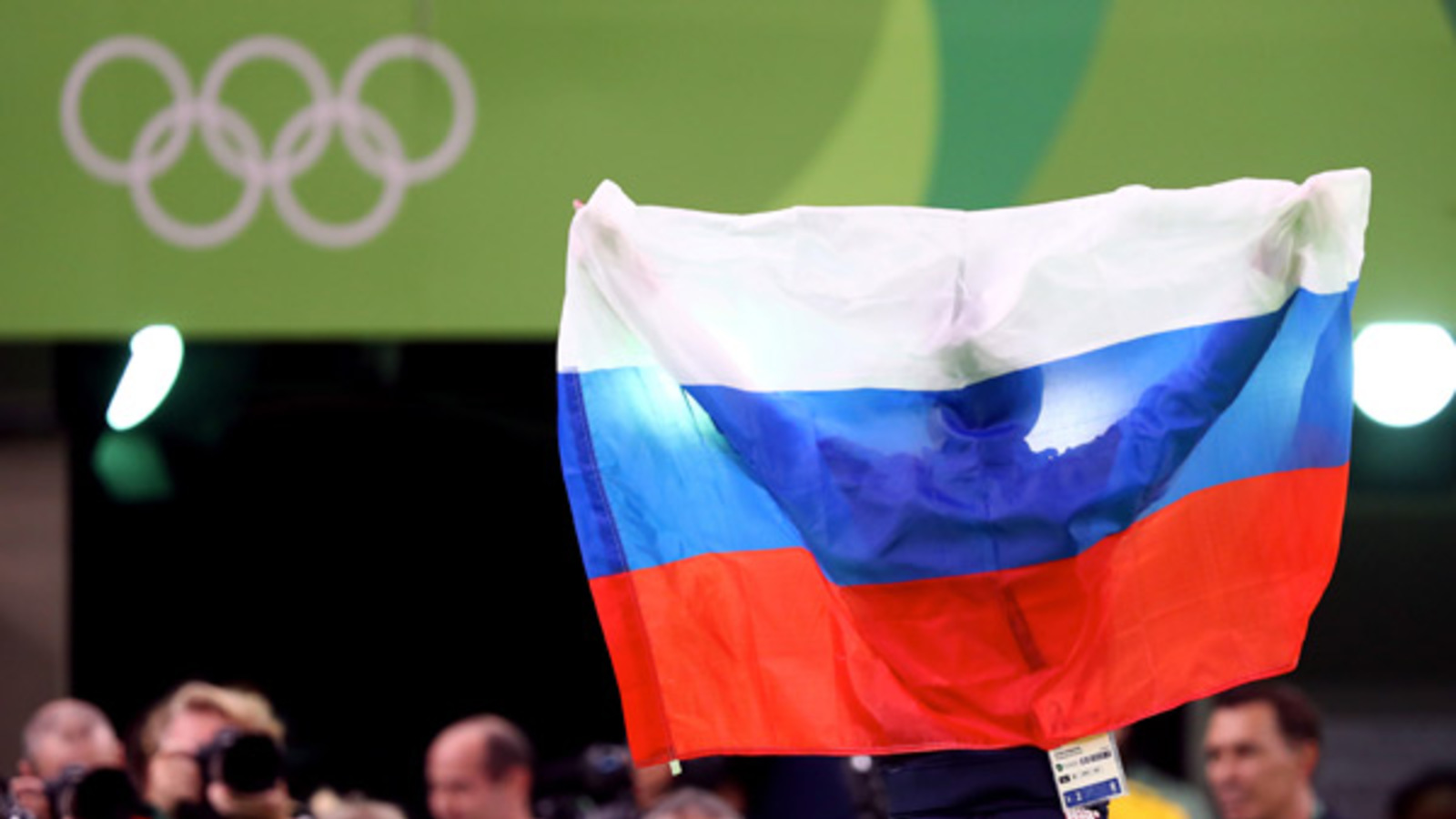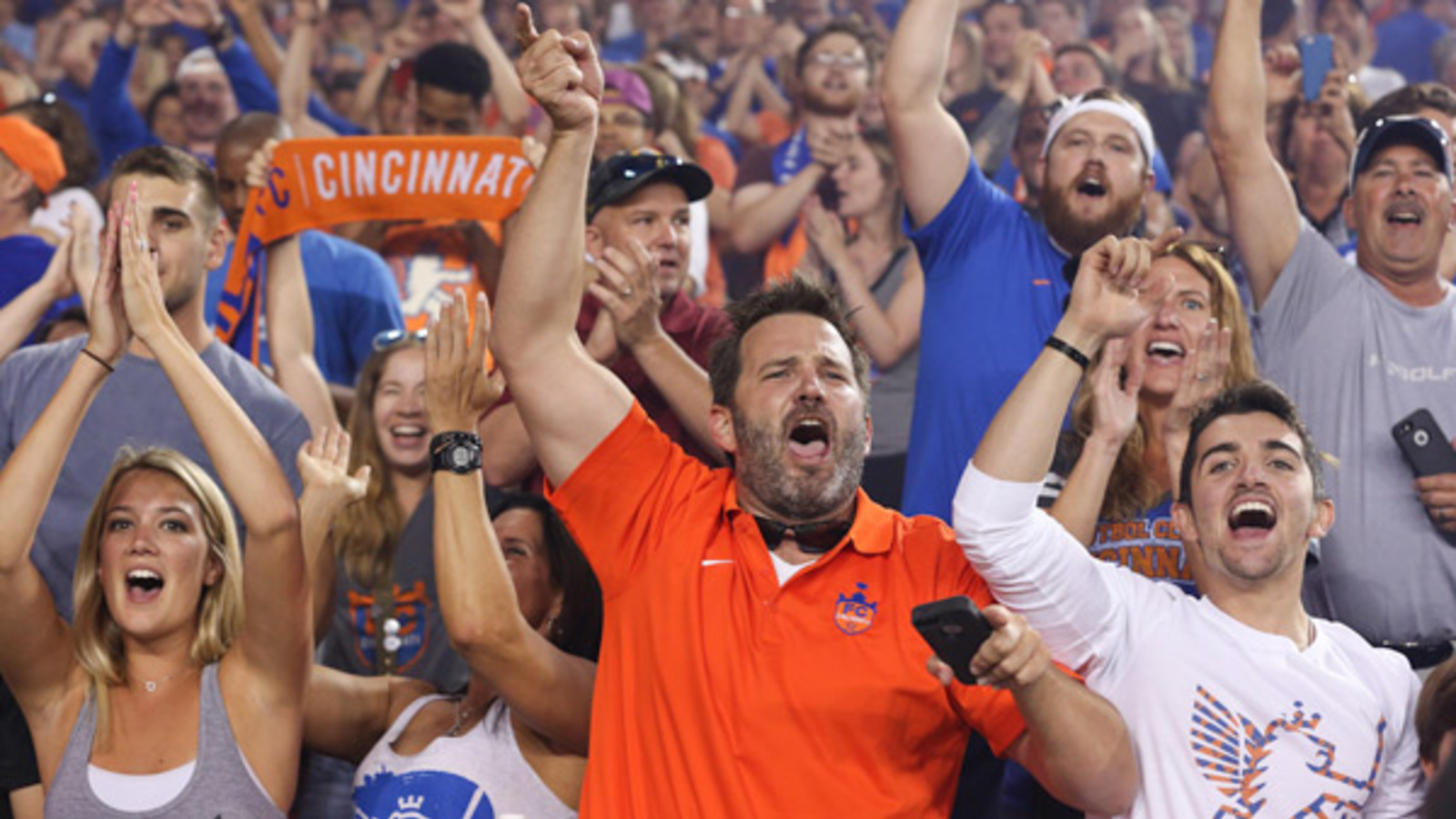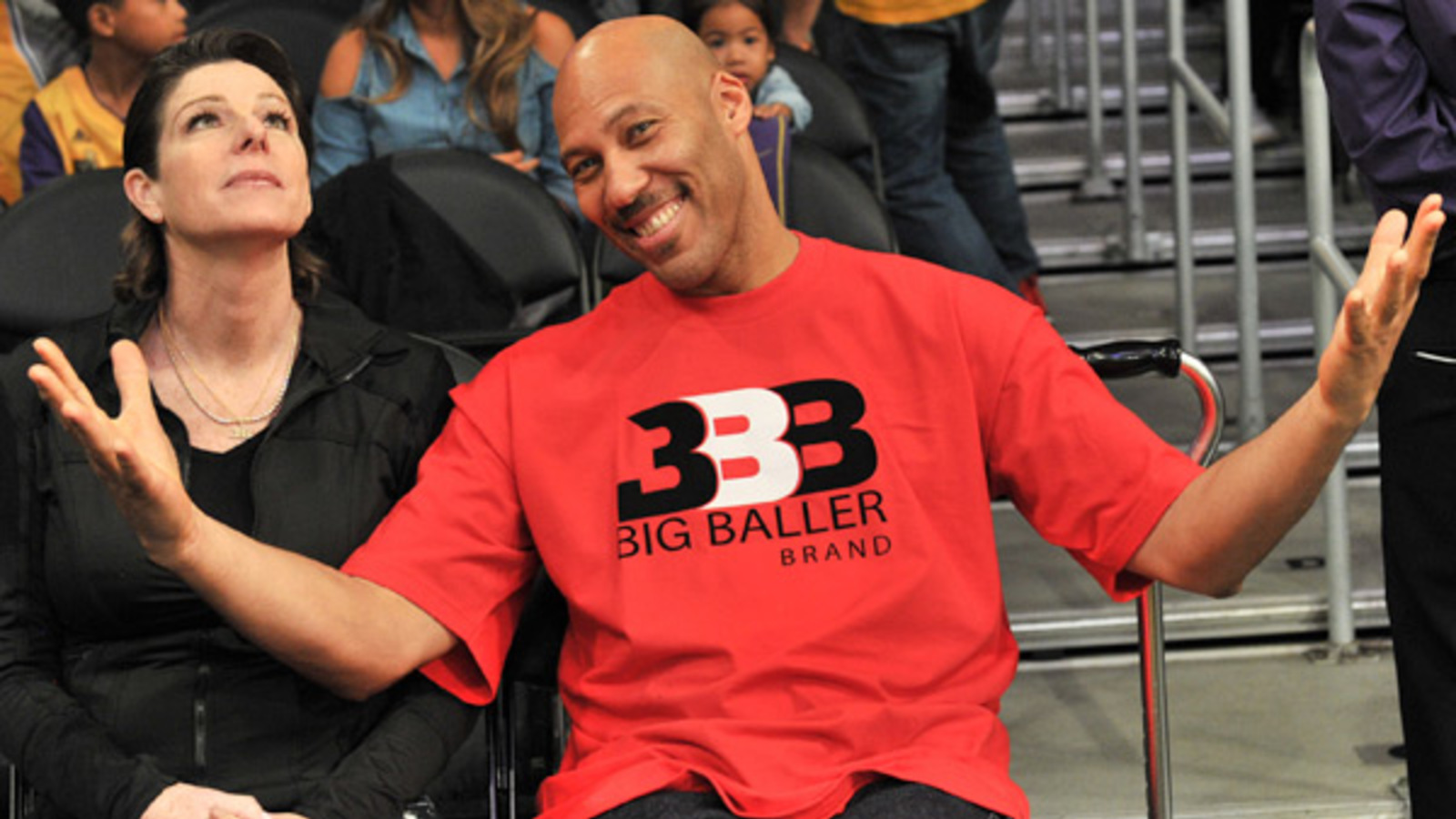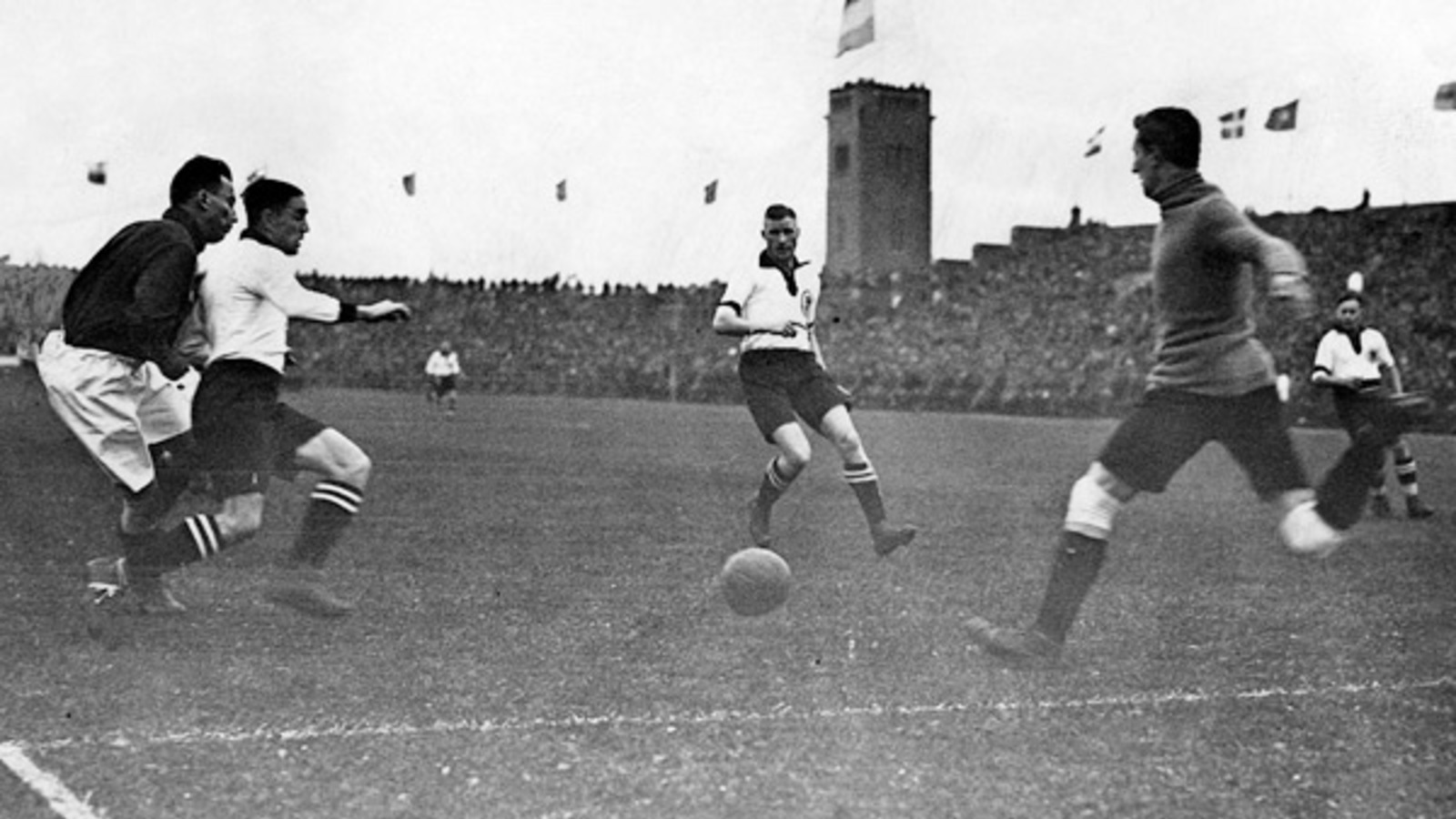
Sports & Politics Intersect: NFL, Players Coalition forge a separate peace
Front Five: The top stories that shaped both sports & politics this week
"Don't believe the hype." - Russell Okung, Los Angeles Chargers offensive tackle
The National Football League's season of messiness and drama continues on for another week, and this time Jerry Jones is not involved. This time around it's players, not the owners, who are fighting each other.
It all started on Wednesday when it was reported that the NFL had agreed to a tentative plan with the Players Coalition – the 40-plus player group leading the national anthem protests – to donate $89 million to social justice causes, the very same issues that pushed Colin Kaepernick to start kneeling in the first place. The problem with this proposal? It appears that it was negotiated between the league and former NFL receiver Anquan Boldin and Philadelphia Eagles safety Malcolm Jenkins, and no one else. The seeming lack of transparency did not sit well with other players, namely San Francisco 49ers safety Eric Reid and Miami Dolphins tight end Julius Thomas. The two issued identical statements announcing their departure from the Players Coalition because of it.
Things devolved from there. Reid accused the league of trying to pay off the protesters and co-opting the overall message, noting that he was approached by Jenkins to see whether Reid would be willing to stop kneeling if the NFL made the proposed contribution. Reid said no.
"It's a charade. It's basically going to be an NFL Cares," Reid told Slate, referencing the league's public service announcement campaigns. The dissenting football player also accused the NFL of diverting funds from other league initiatives like "Salute to Service" (the military recognition campaign) and breast cancer awareness to pay for their proposal.
“[It] would really be no skin off the owners’ backs: They would just move the money from those programs to this one.”
Reid's accusation has not yet been substantiated.
For his part, Jenkins has denied any impropriety – he did say he wouldn't kneel at Sunday's game against the Seattle Seahawks – lamenting the breakdown of communication between himself and Reid.
"It's disappointing because it catches us off guard," Jenkins said at a presser.
So where does that leave us? It's unclear, which is really par for the course for the NFL.
- Fidel Martinez

"You may think the present deal is a win because something (anything) will get passed and be chalked up as an accomplishment for your administration. Nothing can be further from the truth." - Yankees owner Randy Levine on the GOP tax plan
Last Friday, President Donald Trump hit the golf course with Tiger Woods, Dustin Johnson and Brad Faxon, who said that Trump is a legitimately good golfer. "He drives the ball pretty straight, he has the draw that every player who plays this game wants to have, he hits the ball probably 230 or 240 yards," Faxon said. "He was very good."
Despite his abilities on the golf course, he’s still not very popular in the NBA community. It was announced that Trump would drop his name from the Trump Soho in New York, and the biggest reason for this change stems from NBA teams refusing to stay in the hotel. LeBron James has been one of the most vocal about not staying in hotels with his name on them, but several NBA teams and teams from other leagues are refraining from staying in his hotels as well.
Golden State Warriors head coach Steve Kerr spoke out about the president and the team declining to visit the White House. "We see what President Trump does with his words, with his actions, and it's difficult to reconcile that and just say we'll put all that aside," said Kerr in his interview with CNN. "He can make fun of handicapped people. He can say a lot of nasty things, ugly things, whether it's about women, whomever. There can be a lot of things that happen that are just really difficult to just say, 'All right, we'll put that aside and go visit and shake his hand.' It doesn't feel right."
And to Yankees’ owner, Randy Levine, Trump’s tax plan doesn’t feel right, either. In a column for Newsmax Sunday, Levine blasted Trump's tax plan, writing, “When you ran and won, you ran on draining the swamp, not giving new life to it. You ran on tax cuts, not on the swamp's idea of tax reform where special interests win.
"This is a plan that helps Wall Street, hedge funds, private equity managers, real estate and oil and gas partnerships and individuals who disguise income as profits or distributions."
Levine considers himself one of Trump’s longest standing supporters, but even he could not fathom supporting the president's tax plan.
- Phillip Barnett

“Although we recognize the need to confront doping in sport, Olympic participation should not be used to sanction the many for the actions of the few." - International Ice Hockey Federation President René Fasel
We are a little over two months away from the start of the 2018 Winter Olympics in PyeongChang, South Korea, and a lot of unknowns that could derail the event have yet to be resolved. The most pressing issue is what to do with Russia.
It's become increasingly more apparent that Russia was involved in a state-sponsored doping program. At least four Russian athletes have been banned from participating at the upcoming Games in the last week alone. It's gotten so bad that the International Olympic Committee is considering banning Russia altogether from the games, much like it did during the 2016 Rio Summer Olympics.
Not all sports-related governing bodies are keen on banning Russia altogether. The International Ice Hockey Federation has urged that preventing Russian athletes from going to PyeongChang would be prove to be more detrimental than helpful.
“Russia’s role in the growth and development of ice hockey cannot be understated," the IIHF said in a statement." This country forms a pillar on which our sport’s legacy rests upon.”
It's not an unfair stance to take. The Winter Olympics won't have the marquee names of National Hockey League players to draw in viewers, and Russia has historically been a powerhouse in the sport.
The IOC is expected to make a ruling in the near future. If they do decide to ban Russia altogether, don't be surprised if PyeongChang becomes another Rio or Sydney.
- Fidel Martinez

"We are pleased these highly-respected business and sports leaders have been so determined to bring Major League Soccer to their cities." - Don Garber, Major League Soccer commissioner
Major League Soccer announced on Wednesday the four cities in consideration for their two upcoming expansion teams: Cincinnati, Detroit, Nashville and Sacramento. Representatives from each city will be making a formal presentation on Dec. 6 in New York to the league's Expansion Committee.
Each city will likely use different tactics to get one of the two expansion teams. Detroit, for example, will rely on its ownership group as a selling point. The Motor City's team counts Cleveland Cavaliers owner Dan Gilbert and Detroit Pistons owner Tom Gores as its backers. The Nashville coalition will likely try the same thing; their ownership group contains the Wilf family, who own the Minnesota Vikings. The difference between Detroit and Nashville is that the former isn't dealing with stadium headaches (at least not yet), whereas Nashville is. An advocacy group has filed a lawsuit against Nashville in hopes of preventing the city from converting its fairgrounds into a stadium. The lawsuit could derail already announced plans to build a stadium.
Despite not having big name backers, Cincinnati and Sacramento have the support of their local governments. Cincinnati's city government approved $36 million for a stadium and an additional $15 million for an accompanying parking structure.
Regardless of who gets the bid, the expansion conversation is a welcome change of subject for MLS. The league is currently embroiled in controversy over the assumed relocation of Columbus Crew FC – one of the league's founding teams – to Austin, Texas.
- Fidel Martinez

“Check this out, I’m going to send Trump some ZO2s. We just got them out, man, we putting them on flight today, today is the 24th, and I said we’re shipping out ZO2s. You know what, I got to ship some to Trump so he can calm down a little bit.” - LaVar Ball on his spat with Donald Trump
If you take a brief survey of all of Donald Trump’s public feuds with professional (and college) athletes in the last calendar year, you’ll find one common thread: they’re all black. Just take a glance at who and what he’s chosen to address via social media and public speaking appearances:
Trump on Kaepernick: “I watched Colin Kaepernick and I thought it was terrible. And then it got bigger and bigger and started mushrooming. And frankly the NFL should have suspended him for one game and he would have never done it again.”
Trump on NFL player protests: “Wouldn’t you love to see one of these NFL owners, when somebody disrespects our flag, to say, ‘Get that son of a b----- off the field right now, out. He’s fired. He’s fired!’”
Trump on Steph Curry: “Going to the White House is considered a great honor for a championship team. Stephen Curry is hesitating, therefore invitation is withdrawn!”
Trump on Jemele Hill: “With Jemele Hill at the mike, it is no wonder ESPN ratings have 'tanked,' in fact, tanked so badly it is the talk of the industry!”
Trump on Marshawn Lynch: "Marshawn Lynch of the NFL’s Oakland Raiders stands for the Mexican Anthem and sits down to boos for our National Anthem. Great disrespect! Next time NFL should suspend him for remainder of season. Attendance and ratings way down."
Trump on LaVar Ball: “It wasn’t the White House, it wasn’t the State Department, it wasn’t father LaVar’s so-called people on the ground in China that got his son out of a long term prison sentence - IT WAS ME. Too bad! LaVar is just a poor man’s version of Don King, but without the hair. Just think.”
Ball is just the latest of Trump’s run-ins with black athletes or black public figures in the sports world. Ball’s second son, LiAngelo, was arrested in China and Trump helped ensure that LiAngelo would make it home. He, in turn, asked for a thank you on Twitter, and when was not offered one from LaVar, he attacked another man whose color of skin did not align with who he believes his constituents are.
Each individual story comes and goes with the news cycle, but the consistency and the rate at which these stories continue to happen should be what’s most important here. Not just that Trump continues to find new ways to attack black athletes, but his consistent refusal to acknowledge larger issues, many of which stem from his own administration, leave many wondering what his endgame is with these attacks. The question is no longer if he’ll attack another black athlete, but a matter of who it’ll be the next time and when will it happen.
- Phillip Barnett
Of Note:
Larry Nassar, the former sports doctor who worked for USA Gymnastics and Michigan State University, pled guilty to three counts of first-degree criminal sexual conduct and will face child pornography charges as well. Nassar has been accused of molesting over 140 girls and women, including three members of the famed 2012 Olympic gold medal-winning women’s gymnastics team. Interestingly, Michigan State, which employed Nassar for two decades, has not faced any of the public or legal scrutiny that Penn State had with Jerry Sandusky, despite there being three times the number of accusers compared to the former Nittany Lions assistant football coach.
Fans who will attend matches at the 2018 World Cup in Russia will be allowed to have rainbow paraphernalia in support of the LGBT community, yet they cannot promote same-sex relationships to minors, according to officials. Russian passed a federal law which banned "gay propaganda" to minors in 2013, a measure that’s drawn global criticism for banning pride parades and discussion of LGBT issues in public where children may be present.
At The Guardian, Liam Rosenior believes that the macho culture within soccer needs to change in order for gay players to feel comfortable enough to not only come out, but to thrive. The Brighton & Hove Albion winger spoke about efforts from both the Premier League and Football League to show more inclusivity, but says more must be done.
According to the results of a recent survey, the combined pay for all players in the seven top-flight pro soccer leagues for women is equal to the annual salary of Neymar, the Paris Saint-Germain striker, who will make over $44 million for the 2017-18 season. Ruth Holdaway, chief executive of Women In Sport, believes that despite the growing demand for the ladies’ game, the governing bodies for soccer need to step up when it comes to compensation, adding that “it’s not just about equal pay; it’s about the message that sends out about how much women are valued.”
The fraught relationship between Iran and Israel goes beyond physical borders. An Iranian wrestler, Alireza Karemi-Marchiani, threw a match he would have likely won in the U23 World Senior Wrestling Championship in order to avoid facing an Israeli opponent in the next round. Iran does not recognize Israel as a state, and forbids its athletes to compete with Israelis in any sport.
The NHL might be intrigued by Houston’s bid for a team, but it doesn’t mean that Seattle is out of consideration. According to a Seattle Times report, two high-ranking league sources said that the NHL wants teams in both cities, with one taking an expansion team and the other being the future home for teams that could potentially relocate such as the Arizona Coyotes or the Calgary Flames.
Carolina Hurricanes owner Peter Karmanos Jr. is in talks to sell the franchise to Thomas Dundon, a Dallas-area businessman. Dundon is the founder of Santander Consumer USA, a subprime auto loan financing company. The Hurricanes have been in North Carolina since relocating from Hartford in 1997.
NHL commissioner Gary Bettman is in full support of the New York Islanders’ push for a new arena in the Long Island town of Belmont. The Isles are seeking local and state approval to build a new facility, but will have to play at the Barclays Center in Brooklyn through at least next season.
The minority stakeholders of the Memphis Grizzlies have invoked a "buy-sell" option that will allow for a new valuation of the team. Robert Pera, who has the majority stake in the Grizzlies, has to decide if he must buy out Steve Kaplan and/or David Strauss to keep his controlling interest of the franchise or sell his share at a set price and leave the ownership group. The group, along with former NFL quarterback Peyton Manning and musician/Memphis native Justin Timberlake, bought the team in 2012 for $377 million.
Quietly, Real Salt Lake was able to use claims of losing money to have its property tax bill lowered by Salt Lake County officials. Despite having some of MLS’ best attendance, the franchise has saved $5 million on taxes for Rio Tinto Stadium since 2012. County officials said that the approved bill was buried under hundreds of proposals sent to the county assessor’s office in a single meeting.
Making good on a World Series bet, U.S. Senator Kamala Harris (D-Calif.) delivered two bottles of wine to fellow Senator Ted Cruz (R-Texas). Of course, because of the political climate in D.C., there was more intrigue beyond Harris having to eat a little crow for the Dodgers’ loss to the Astros.
Speaking of partisan politics, instead of incumbent mayor Bill De Blasio or city councilwoman Nicole Malliotakis, a few New York City voters preferred a couple of write-in candidates for mayor: Yankees slugger Aaron Judge and Knicks star Kristaps Porzingis had the most write-in votes. De Blasio resoundingly defeated Malliotakis, but perhaps he would have had some trouble against Judge if Election Day was a few weeks earlier.
Philadelphia 76ers star center Joel Embiid and team co-owner Michael Rubin recently visited rapper Meek Mill in prison. In November, the Philly-bred artist was sentenced to two to four years for violating probation stemming from a 2008 drugs and weapons case. His sentence, which was also a result of two prior arrests in St. Louis and New York City, has sparked widespread criticism of criminal justice reform.
The first week of December brings the "My Cause, My Cleats" campaign to an NFL team near you. The platform, which launched during the 2016 season, allows players to wear custom designed cleats to bring awareness to various social and medical concerns close to their hearts.
- Also in December, the U.S. Supreme Court will finally hear oral arguments in the long-awaited case of legalized sports betting in New Jersey. While a decision won’t be handed down for months (potentially in June), experts believe that the highest court in the land will decide in favor of the state. Casino operators and betting parlors have drawn up plans in anticipation of the ruling, though even if legalized, it’s uncertain if the state itself or the gaming operators will regulate gambling
- Jason Clinkscales
For the record books: This week in sports politics history

“Sports and politics must be kept separate.” - Karel Lotsy on banned Holland v. Germany soccer match
Kristallnacht, one of the precursors that eventually led to the Holocaust, was a 24-hour attack on Jewish shops and synagogues in which many Jewish men, women and children were beaten and or killed. The pogrom, also known as the Night of Broken Glass, also had an effect – albeit minor by comparison – on the sports world. Just a day after Kristallnacht ended, Germany was set to play Holland in a soccer match, but many opposed the idea, including Pieter Oud, mayor of the Dutch city of Rotterdam, who banned the match.
The Dutch National Socialist Party was furious with the decision and a national debate raged on about “Jewish Danger” and whether cancelling the match would “injure the relationship between the Netherlands and Germany.” Despite constant attacks against Oud, he stood his ground and the game was not played, and the Netherlands would not play against Germany again until 1956.
- Phillip Barnett
More must-reads:
- Alejandro Villanueva, Le’Veon Bell to support troops with cleats
- Navy unveils Blue Angels-inspired uniform for Army-Navy game
- The 'Most points in a playoff game by team' quiz
Breaking News
Customize Your Newsletter
 +
+
Get the latest news and rumors, customized to your favorite sports and teams. Emailed daily. Always free!

